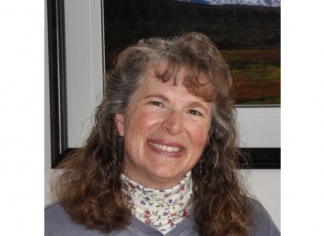Over the years, a major component of the DTC’s approach to facilitating the transition of research innovations into operations has been its support for distributed development of community software that includes the capabilities of the current operational systems. This software support has provided the foundation for conducting testing and evaluation that can inform the research to operations (R2O) process. The DTC’s software support responsibilities have involved, to varying degrees, the Gridpoint Statistical Interpolation (GSI) and Ensemble Kalman Filter (EnKF) data assimilation systems, the Weather Research and Forecasting (WRF) model, the Hurricane WRF (HWRF), the Unified Post Processor (UPP), the advanced Model Evaluation Tools (METplus), and more recently the Common Community Physics Package (CCPP) with its companion Single-Column Model (SCM) capability and the Unified Forecast System (UFS) Medium Range Weather (MRW), Short Range Weather (SRW) and Hurricane Applications.
These software support activities range from code management efforts that include code reviews and regression testing to user and developer support activities with documentation, Users’ Guides, help desk support and training. Supporting all aspects of an end-to-end numerical weather prediction (NWP) system requires substantial resources such that some years as much as 75% of the DTC’s annual budget has been dedicated to its software support activities, leaving limited resources to dedicate to actually testing innovations, a role that should be central to a testbed.
With the award of the contract for the Earth Prediction Innovation Center (EPIC), the DTC is on the cusp of an exciting evolution. EPIC represents a significant infusion of funding that will address the code management and support needs for the UFS. The UFS is envisioned to be a community-based, coupled, comprehensive Earth modeling system that supports applications spanning local to global domains and predictive time scales from sub-hourly analyses to seasonal predictions. Over the next few years, the DTC will be working closely with the EPIC Program Office to transition aspects of its software support activities to the EPIC contractor. Stepping back from these software support activities will free up resources to increase the DTC’s investment in testing and evaluation activities, which will be a dream come true. While the DTC will be stepping back from some of its software support activities, we envision the DTC will continue to play a key role in the development and support of two software tools that are central to a hierarchical testing framework (HTF) - CCPP and METplus. The DTC is looking forward to working closely with the NWP community to engage in in-depth testing and evaluation activities that will include more diagnostic information on model performance to inform the development process.
Louisa Nance is the Director of Developmental Testbed Center. She has been with the DTC since it's inception in 2003, as its first official hire when Bob Gall was the Director and Steve Koch the Deputy Director. She has served in many leadership roles in the DTC, including the DTC Assistant Director.
